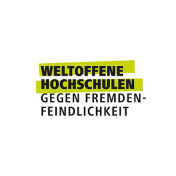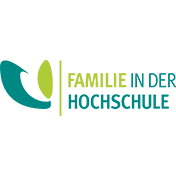Third-party open access funding is applied for with every research proposal. If third-party funding is available, this is used to pay for open access publications.
If no third-party funding is available and the following conditions are fulfilled, open access publications can be financed using the Reutlingen University open access fund:
- You are a member of Reutlingen University and listed as the “corresponding author” of the article
- The invoice is made out to Reutlingen University
- The article is published with a publisher with which the university has a framework contract (see below for more information)
If there is no existing framework contract with the publisher, the following conditions must also be fulfilled:
- The article appears in a gold open access journal that is listed in the Directory of Open Access Journals
- This form (PDF) is filled out and sent to the University Library (Learning Centre) before the article is submitted
ACM
ACS
Elsevier
Emerald
Sage
Springer Nature
Taylor & Francis
Wiley
wt werkstattstechnik online
Other publishers
The University Bibliography is the central database for publications by authors at Reutlingen University. It is also our repository for both primary and secondary publication of research results as open access.
The university library and RRI work together closely to provide all relevant information for the annual research report. Our goal is for all publications produced at Reutlingen University to be listed, based on what is reported to us by the authors.
The publication guidelines (currently only available in German) set the formal framework for the publication of research results by members of Reutlingen University. The guidelines aim to increase the visibility of Reutlingen University and its research.
ORCID is an organisation that provides researchers and authors with a unique ID (ORCID iD). An ORCID iD ensures that your publications can be correctly attributed to you as a researcher, regardless of whether your name is spelt differently, whether someone else has the same name as you or whether your name changes. We recommend that you register with ORCID: as well as quickly becoming an international norm, many publishers and funding agencies require you to provide your ORCID iD when you submit publications or proposals.
In the University Bibliography, a link is also provided from your publications to your ORCID record.
With the support of the Ministry of Science, Research and the Arts, Tübingen University Library created the Central OER Repository of the state universities in Baden-Württemberg (ZOERR), which it operates as a service for all universities in Baden-Württemberg. Reutlingen University has been a partner in this project since 2017.
Teachers at Reutlingen University can publish their teaching materials in ZOERR and thus make their teaching achievements more visible.
Do you have questions?
Contact Dr. Katharina Ebrecht with your questions about open access and OER.
Contact Anna Skene-Hill with your questions about the University Bibliography.







